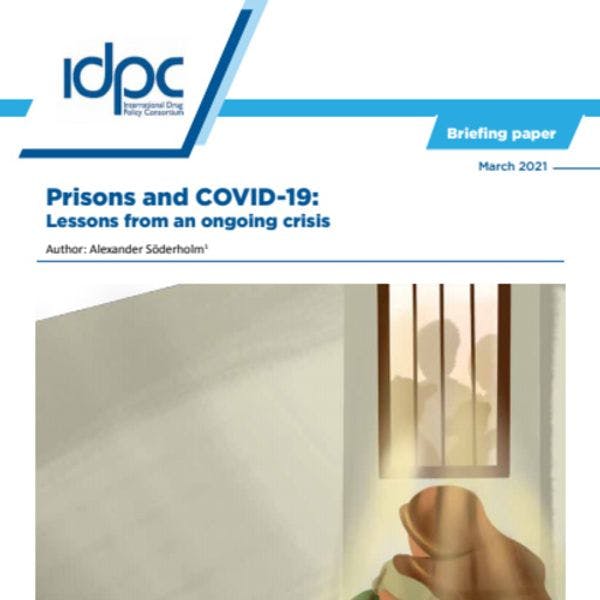Prisons and COVID-19: Lessons from an ongoing crisis
By Alexander Söderholm, PhD Candidate at the London School of Economics and Political Science
The disruption caused by the COVID19 pandemic has exposed the health inequities within our societies, and particularly in prisons. By February 2021, at least 504,000 people deprived of liberty had tested positive for COVID19 -approximately a 4.5% of the global prison population. This resulted in a minimum of 3,800 deaths, though this is likely to be an underestimate as many countries lack testing equipment within prisons. Across the world, our overcrowded prison systems have failed to protect the life and health of people deprived of liberty.
Through four case studies that focus on the response to the pandemic in Colombia, Indonesia, Ireland, and Kenya, this briefing, launched by IDPC together with Harm Reduction International, Penal Reform International, LBH Masyarakat, and Reprieve, draws several lessons from this still ongoing crisis.
- At the outset of the pandemic, a number of countries committed to reduce the number of people in prison in order to prevent the spread of the virus. However, in many cases decongestion measures have arbitrarily excluded people detained for certain drug offences.
- Many countries that implemented decongestion measures simultaneously failed to halt the disproportionate imprisonment of people for drug offences, thus undermining attempts to reduce prison overcrowding.
- In most cases, states responded to the pandemic by isolating prisons from the community. As a result, people deprived of liberty have been unable to access the most basic legal, health, and drug services. In many countries, this also means that incarcerated people cannot receive the food, clothes, and money regularly provided by their families.
- Before COVID19, there was already a dramatic lack of appropriate drug treatment and harm reduction services in prisons. Even were such services existed, incarcerated people have experienced serious restrictions in accessing them during the pandemic.
- Community integration programmes have failed to support people released from prison during the COVID-19 pandemic. Upon release, formerly incarcerated people have faced severe challenges, including exclusion from the formal economy, social stigma, and exploitation.
Downloads
Regions
Related Profiles
- International Drug Policy Consortium (IDPC)
- Harm Reduction International (HRI)
- LBH Masyarakat
- Penal Reform International
- Reprieve
